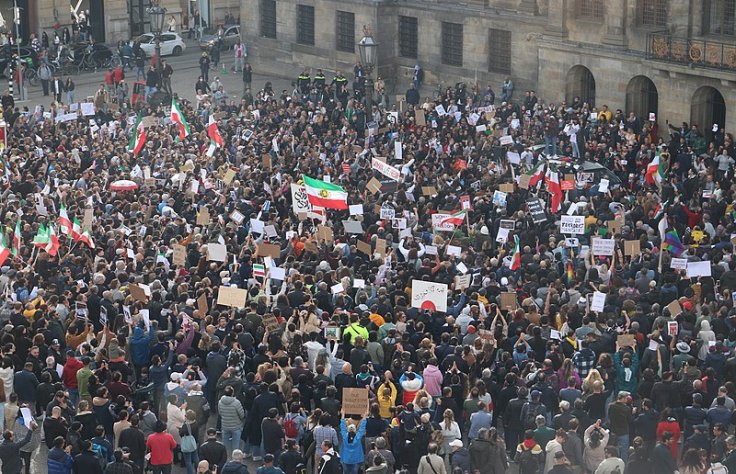The Iranian footballers who refused to sing the national anthem ahead of their World Cup match against England on Sunday could face severe consequences including arrest back home, the Newsweek has reported, citing experts.

The Iranian players and their families "could face significant consequences including detention and/or arrest", David E. Guinn, a University of Albany research professor of international law and human rights, told Newsweek.
In a bold and scandalous move that marked the high point of the anti-hijab protests in Iran, the footballers remained silent as Iran's national anthem was played at Khalifa Stadium in Doha. Many Iranian sports personalities had stood with the protesters but Monday's action by the national football team is the strongest anti-government stance form the sporting community yet.
Protest by Iranian fans - booing their own national anthem ahead of match against England. #Qatar2022 #iran pic.twitter.com/3YN5V2y7BO
— Jonathan Swain (@SwainITV) November 21, 2022
"The Iranian regime has clearly demonstrated its determination and ruthlessness in seeking to quell that unrest, particularly in public settings ... While the public standing of the players might shield them for a time, particularly while they are competing in the World Cup, that standing will also make them of greater concern to the regime. They don't want prominent individuals stepping forward to feed the flames," Guinn said.
Loud whistling from Iran fans for their own national anthem, many of whom are protesting against their regime pic.twitter.com/nk65KVW00U
— Sean Ingle (@seaningle) November 21, 2022
Following the stunning protest by Iran's national football team, Twitter was flooded with comments that also pointed out that Iranians at the stadium booed even as their national anthem was played ahead of the start of the game.
The expert also told Newsweek that Iran's National Revolutionary Guards will identify the protesters inside the stadium and pursue them. "I have no doubt that the Iranian security services Revolutionary Guard will attempt to identify them—particularly those who were carrying signs—and dig into their backgrounds looking for anything to justify a detention or arrest," Guinn added.
Another expert, also told Newsweek that the prospect of Iranian players being punished is quite strong. "The Iranian regime has demonstrated its willingness to mete out harsh punishments for those seeking to draw attention to its human rights violations, so it is easy to imagine the players being punished," said Scott Sullivan, a professor of public international law and human rights at Louisiana State University, Newsweek says.
Read more









